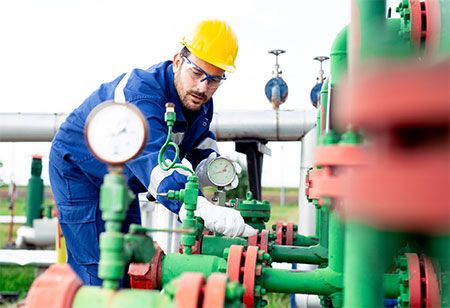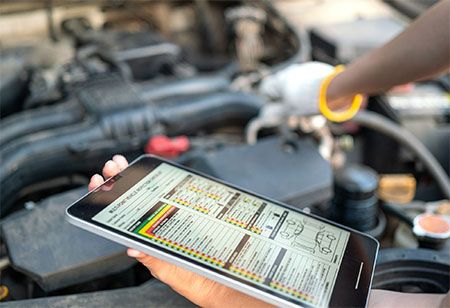7 Key Benefits Of Preventive Maintenance
By Simran Kaur, Content Writer
 Preventive maintenance is a strategy employed in various industries to en- hance the efficiency and reliability of equipment. It prevents unexpected fail- ures and extends operatio- nal lifespan.
Preventive maintenance is a strategy employed in various industries to en- hance the efficiency and reliability of equipment. It prevents unexpected fail- ures and extends operatio- nal lifespan.
By conducting routine inspections, maintenance tasks and condition monitoring, organizati- ons can mitigate unplan- ned downtime and foster a safer, more productive op- erational environment.
What Is Preventive Maintenance?
Preventive maintenance refers to the routine maintenance tasks and inspections performed on equipment, machinery, or systems to prevent unexpected failures or breakdowns.
Preventive maintenance contrasts with reactive maintenance, which involves repairing or replacing equipment after a failure has occurred.
Maintenance activities can include a wide range of tasks, such as cleaning, lubricating, adjusting, and replacing parts before they fail. The schedule for these tasks is typically based on the manufacturer's recommendations, past maintenance history, and the equipment's operational conditions.
The primary goal of preventive maintenance is to ensure that equipment continues to operate efficiently and effectively, reducing the likelihood of unplanned downtime and costly emergency repairs.
Designing a preventive maintenance program tailored to specific equipment and operational requirements can significantly impact an organization's productivity and bottom line.
 Benefits Of Preventive Maintenance
Benefits Of Preventive Maintenance
Preventive maintenance offers numerous benefits across various industries. Here are some of the key advantages:
- Reduced Downtime
Preventive maintenance is pivotal in ensuring operations flow continuously, spotting and fixing potential problems before they lead to machine failure.
In sectors such as manufacturing, healthcare, or IT, unexpectedly halting operations can mean severe financial losses. For instance, in manufacturing, even an hour of downtime can translate into significant production value loss.
Regular inspections and maintenance address minor issues promptly, guaranteeing that machinery is always ready for use and that operations proceed without interruption, safeguarding the company's revenue stream.
- Increased Equipment Lifespan
The routine care and upkeep facilitated by preventive maintenance handle the normal wear and tear that equipment undergoes. This keeps the machinery functioning at optimal levels and significantly extends its operational life.
For example, extending the life of manufacturing equipment by 20% through maintenance can defer costly replacements, allowing the allocation of funds to other business-enhancing projects.
This approach minimizes the frequency of capital investment in new machinery, maximizing the return on existing assets.
- Improved Safety And Quality
Regular maintenance ensures that equipment operates safely and efficiently, minimizing the risk of workplace accidents and protecting employees from harm. This diligence reduces the likelihood of facing legal actions or fines.
Additionally, well-maintained machinery is more likely to produce consistent, high-quality outputs. For industries such as food processing, maintaining equipment in top condition is critical for ensuring product consistency, which is vital for customer satisfaction and maintaining a strong brand reputation.
- Cost Savings
Preventive maintenance addresses issues when they are manageable and avoids the need for more extensive, expensive repairs later.
Equipment kept in prime condition is more efficient, necessitating less energy and thus lowering operational costs.
For instance, addressing a minor leak in a hydraulic system early on can prevent a complete system failure, showcasing preventive maintenance as a strategic investment that pays dividends over time.
- Efficiency And Reliability
Machinery under regular maintenance is less prone to sudden failures, ensuring smooth and efficient operations. This reliability is essential for keeping productivity high and solidifying a company's reputation in the marketplace.
For example, a logistics company that routinely maintains its fleet can avoid delivery delays, enhancing its reliability and attractiveness to customers, thereby supporting business growth and customer retention.
- Compliance And Environmental Benefits
Preventive maintenance ensures adherence to regulatory standards, demonstrating a commitment to safe and responsible operation. It also yields environmental benefits by enhancing equipment efficiency, reducing waste, and conserving energy.
This responsible operation can improve a company's market position, appealing to eco-conscious consumers and partners. For instance, a company reducing its emissions through regular maintenance can bolster its community and environmental standing.
- Predictable Scheduling And Enhanced Resale Value
Unlike reactive maintenance, preventive maintenance allows for activities to be scheduled in advance, minimizing disruptions to production.
This foresight ensures that maintenance doesn't interfere with operational demands, enabling better resource allocation and operational continuity.
Furthermore, regularly maintained equipment retains higher value and is more appealing to buyers, benefiting businesses looking to upgrade or sell machinery.
For instance, a construction company can secure better prices for its machinery with a verifiable maintenance record, indicating reliability and care.
Conclusion
It's evident that preventive maintenance offers a broad spectrum of benefits, from enhancing operational efficiency and safety to ensuring compliance and promoting environmental stewardship.
Through strategic maintenance planning, businesses can safeguard their assets and workforce as well as improve their market position and financial health, making preventive maintenance an indispensable facet of successful operational management.




